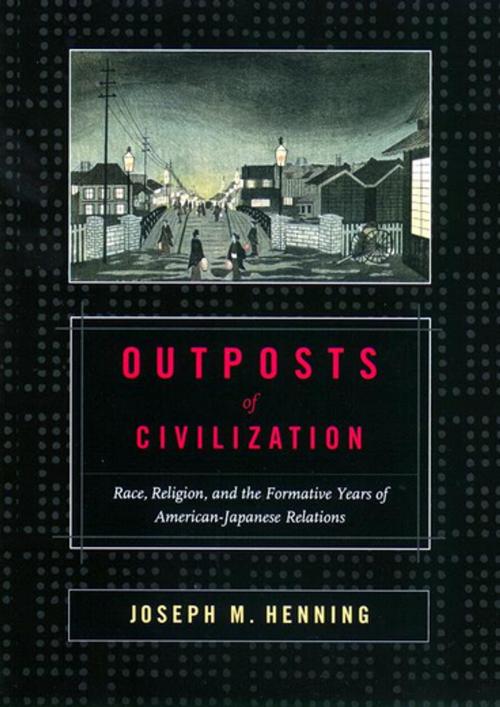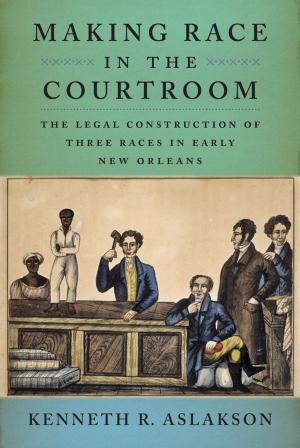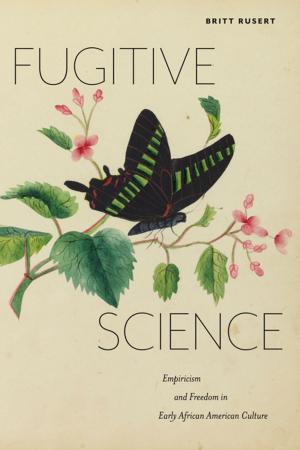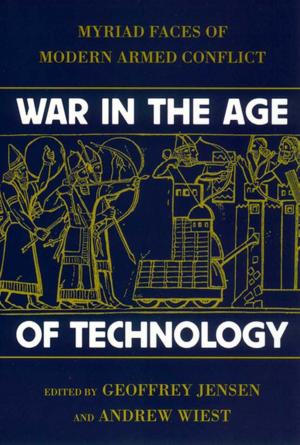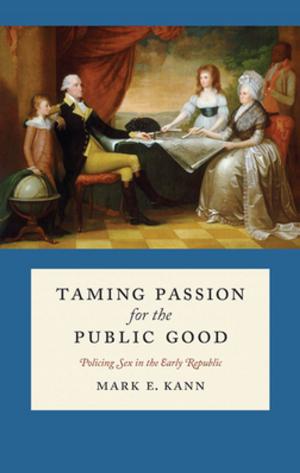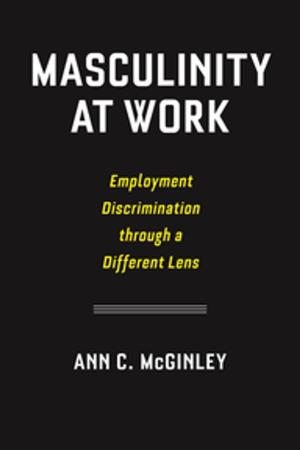Outposts of Civilization
Race, Religion, and the Formative Years of American-Japanese Relations
Nonfiction, Social & Cultural Studies, Social Science, Discrimination & Race Relations| Author: | Joseph M. Henning | ISBN: | 9780814790649 |
| Publisher: | NYU Press | Publication: | June 1, 2000 |
| Imprint: | NYU Press | Language: | English |
| Author: | Joseph M. Henning |
| ISBN: | 9780814790649 |
| Publisher: | NYU Press |
| Publication: | June 1, 2000 |
| Imprint: | NYU Press |
| Language: | English |
Civilization and progress, Gilded Age Americans believed, were inseparable from Anglo-Saxon heritage and Christianity. In rising to become the first Asian and non-Christian world power, Meiji Japan (1868-1912) challenged this deeply-held conviction, and in so doing threatened racial and cultural hierarchies central to American ideology and foreign policy.
To reconcile Japan's stature with American notions of Western supremacy, both nations embarked on an active campaign to construct an identity for the Japanese which would recognize Japan's progress and abilities without threatening Americans' faith in white, Christian superiority. Japanese efforts included reassurances in diplomatic exchanges and in the American press that their nation adhered to the central tenets of Western civilization, namely constitutional government, freedom of religion, and open commerce. Many anxious Americans eagerly accepted such offerings, and happily re-conceived the Japanese as adoptive Anglo-Saxons.
As with the best new work in diplomatic history, in Outposts of Civilization Henning considers culture to be integral to understanding foreign relations. Thus in addition to official documents and press reports, he examines American missionaries' writings on the Japanese, and American and Japanese art and literature produced during the Gilded Age. In exploring the delicate and deliberate process of identity construction, and how these discourses on race and progress resonated throughout the twentieth century, Henning has produced a fascinating and important study of American-Japanese relations.
Civilization and progress, Gilded Age Americans believed, were inseparable from Anglo-Saxon heritage and Christianity. In rising to become the first Asian and non-Christian world power, Meiji Japan (1868-1912) challenged this deeply-held conviction, and in so doing threatened racial and cultural hierarchies central to American ideology and foreign policy.
To reconcile Japan's stature with American notions of Western supremacy, both nations embarked on an active campaign to construct an identity for the Japanese which would recognize Japan's progress and abilities without threatening Americans' faith in white, Christian superiority. Japanese efforts included reassurances in diplomatic exchanges and in the American press that their nation adhered to the central tenets of Western civilization, namely constitutional government, freedom of religion, and open commerce. Many anxious Americans eagerly accepted such offerings, and happily re-conceived the Japanese as adoptive Anglo-Saxons.
As with the best new work in diplomatic history, in Outposts of Civilization Henning considers culture to be integral to understanding foreign relations. Thus in addition to official documents and press reports, he examines American missionaries' writings on the Japanese, and American and Japanese art and literature produced during the Gilded Age. In exploring the delicate and deliberate process of identity construction, and how these discourses on race and progress resonated throughout the twentieth century, Henning has produced a fascinating and important study of American-Japanese relations.
